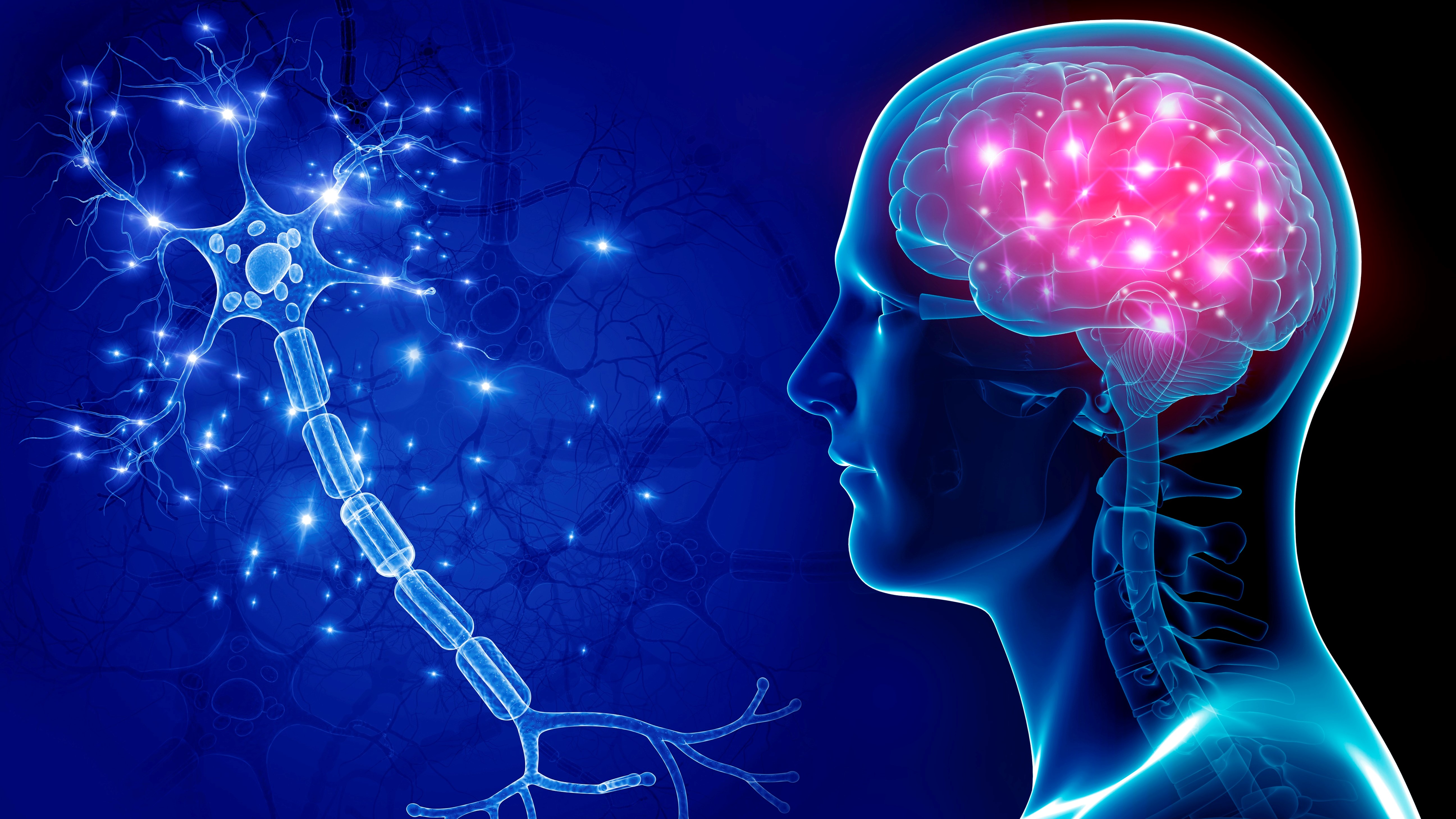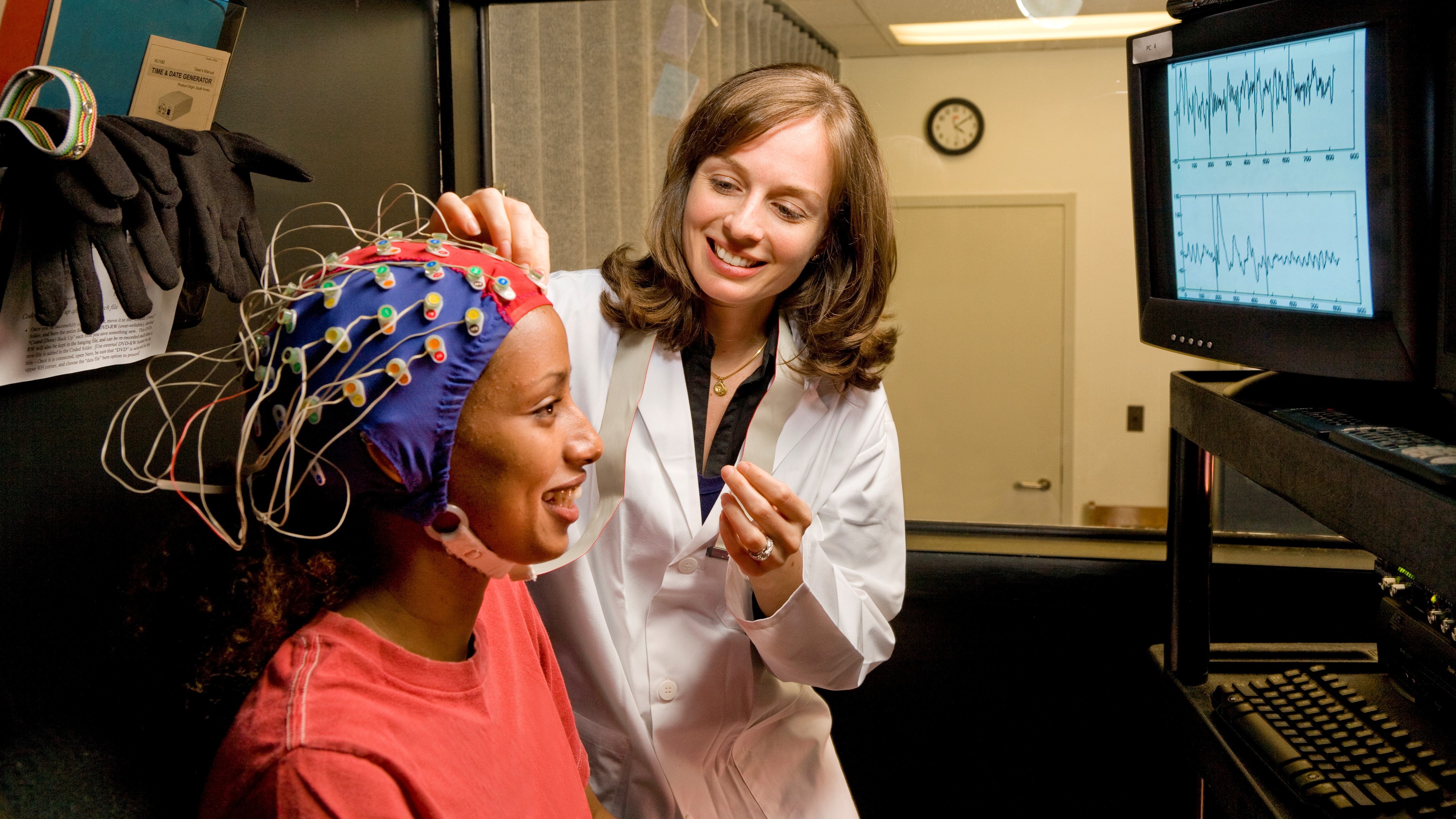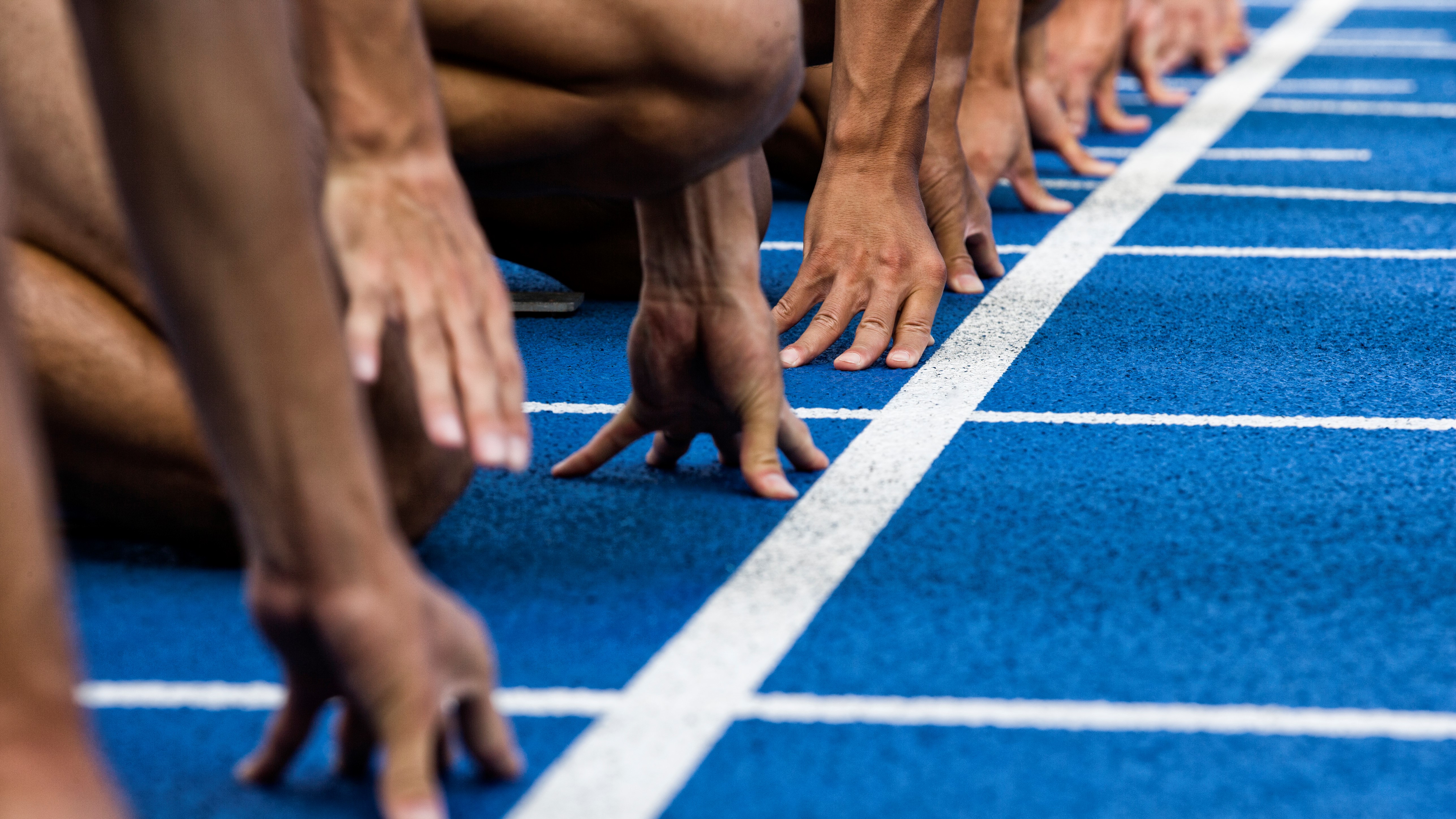Are alpha brain waves the key to unlocking peak performance?
Alpha brain waves are associated with relaxation and creativity, but they could be instrumental in reaching your athletic peak

All the latest inspiration, tips and guides to help you plan your next Advnture!
You are now subscribed
Your newsletter sign-up was successful
Whether you’re pulling on your trail running shoes or putting your feet up for a nap, there’s always some form of electrical activity going on in your brain. When you’re making tactical decisions on a technical trail, your brain produces high-speed brain waves, ensuring that you’re focused and alert to the shifting ground beneath you. Later, as you drift off into a light snooze while swinging in a hammock, your brain shifts into slower waves.
Brain waves are electrical impulses between your neurons that communicate information, such as ideas or emotions. Using EEG testing, scientists have identified five common types of brain waves, or oscillations, that we experience throughout the day, but there’s one type of brain wave activity that’s most intriguing for those looking to boost athletic performance, and those are the alpha brain waves.

What are Alpha brain waves?
Alpha brain waves are one of the most common types of brain wave states that we experience throughout the day. To understand their role, it’s best to view them in the context of the other brain waves:
- Delta: Deep sleep
- Theta: Light sleep or relaxed
- Beta: Wide awake, alert, focused
- Gamma: Learning, problem solving, processing information
- Alpha: Awake but calm, relaxed, meditative
These waves all have different frequencies, ranging between one to 50 hertz (cycles per second), with delta being the slowest and gamma the fastest. You can be experiencing more than one type of wave at the same time, for example in between deep sleep and light sleep, or when you’re both alert and processing information. You can’t, of course, be in delta and beta at the same time.
As you can see, in an ideal day, you’d cycle through each of these brain wave states in any 24-hour period, as your brain responds to sleep, waking gradually, focusing on work and other activities and then relaxing again before bed.

What are the benefits of alpha brain waves?
It’s important to experience each of the brain wave states, but alpha waves are especially important because they mean you’re tapping into states of much sought after relaxation. In his book The Art of Smart Thinking, author James Hardt discusses how alpha waves can help you reduce stress and anxiety. This in turn helps you shift from the fatiguing effects of always being in a state of stress response, to the so-called 'rest and digest' functions of the parasympathetic nervous system.
Given how much stress the average person experiences today (67% of Americans experienced significant stress in 2020, according to the American Psychological Association), this alone seems enough to warrant major interest, but a 2015 study by University of North Carolina at Chapel Hill researchers also correlated alpha brain waves with creative thinking. Further, a 2019 study published in Translational Psychiatry suggests that increasing coherent alpha brain waves could be used as a treatment for depression.
All the latest inspiration, tips and guides to help you plan your next Advnture!
Of course the flip side is that when you’re not experiencing a healthy amount of alpha oscillations, you’re probably not getting much relaxation, your creativity could be hampered and you may even be prone to depression.

How can you produce more alpha brain waves?
Though it might seem like a magic trick to influence your own brain waves, your brain is always responding to what you’re doing, eating, feeling and thinking, so it is possible to influence it through your lifestyle. Some specific behaviors that have been identified in increasing alpha activity include:
- Meditation: A 2006 review of studies on different meditation techniques shows that meditation influences all brain activity, but practices like transcendental meditation primarily increase alpha waves. Other relaxation techniques such as guided imagery and restorative yoga can increase alpha activity too.
- Deep breathing: A 2018 study found that participants who engaged in a practice of slowing down their exhales saw increased alpha activity.
- Lowering caffeine intake: Caffeine isn't great for runners anyway, and further decreases alpha activity according to an article in the Journal of Neuropathy.
- Reducing alcohol consumption: The book The Biology of Alcoholism discusses how alcohol decreases Alpha waves, and we already know that alcohol and running don't mix well for healthy hydration.
In short, if you want to enliven alpha brain wave states, a healthier lifestyle with stress-busting measures isn’t going to do you any harm.

How can alpha brain waves help athletic performance?
So what does all this have to do with athletic performance? After all, when you’re running a half marathon, don’t you want to be wide awake, alert and focused? Some of the research on Alpha waves and athletic performance is theoretical, but the indication of alpha waves and stress is persuasive enough to take notice.
As an athlete, you are probably well-practiced in running on adrenaline, responding to the demands of your sport and staying in a very engaged, focused mindset in order to train and compete. At night, you might also be no stranger to a very deep sleep; after all, you’re exhausted. But this high-stress approach to training takes its toll, and can even be the downfall of a promising athlete as sports psychologist Kirsten Cooper explained in our article on the mental traits of elite athletes. Meditation for runners and other athletes can help boost your alpha waves and manage that performance anxiety that can be your greatest foe on race day.

Further, as we already mentioned, alpha waves have been indicated in creativity, and that’s why many coaches today are implementing relaxation techniques and meditation in their training programs. The Atlanta Falcons are one of several NFL teams encouraging their players to use mindfulness and meditation techniques to enhance the work they do on the field and in the weights room. Creative thinkers take risks and come at challenges from new angles so as a coach or sponsor, they’re a dream come true.
Another technique that stimulates alpha waves being used commonly in athletics these days is visualization, which stimulates alpha function. Researchers have found that this approach helps with motivation, pain management, endurance, confidence and performance.
Finally, you’ve got the fact that alpha waves are associated with relaxation, and relaxation is vital for athletes because it’s required for proper recovery. Adequate recovery is, in turn, vital for performance, because this allows your body time to repair any damage from your last workout, and reduce your risk of injury.
- The best trail running shoes: tested and rated for performance and grip
Julia Clarke is a staff writer for Advnture.com and the author of the book Restorative Yoga for Beginners. She loves to explore mountains on foot, bike, skis and belay and then recover on the the yoga mat. Julia graduated with a degree in journalism in 2004 and spent eight years working as a radio presenter in Kansas City, Vermont, Boston and New York City before discovering the joys of the Rocky Mountains. She then detoured west to Colorado and enjoyed 11 years teaching yoga in Vail before returning to her hometown of Glasgow, Scotland in 2020 to focus on family and writing.

